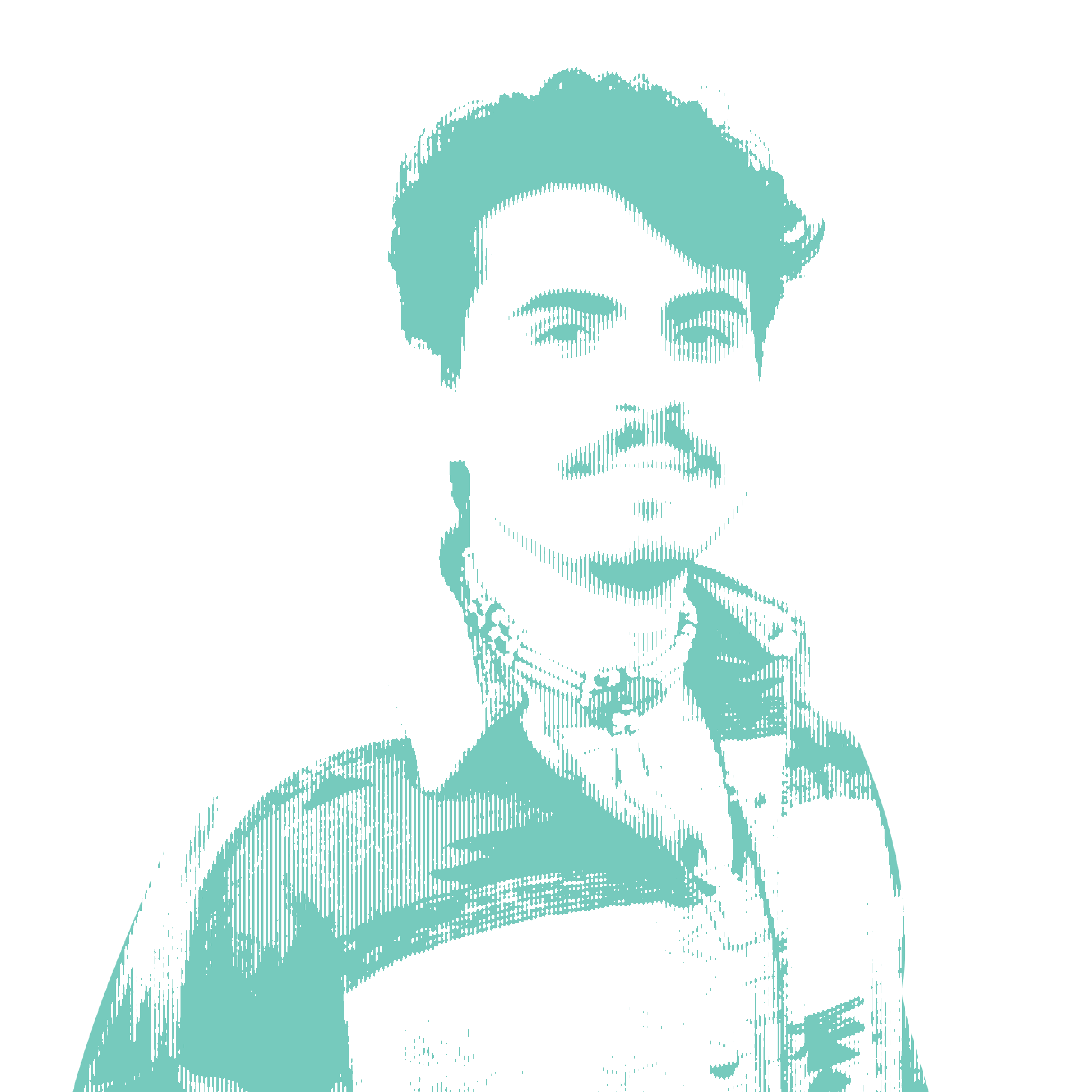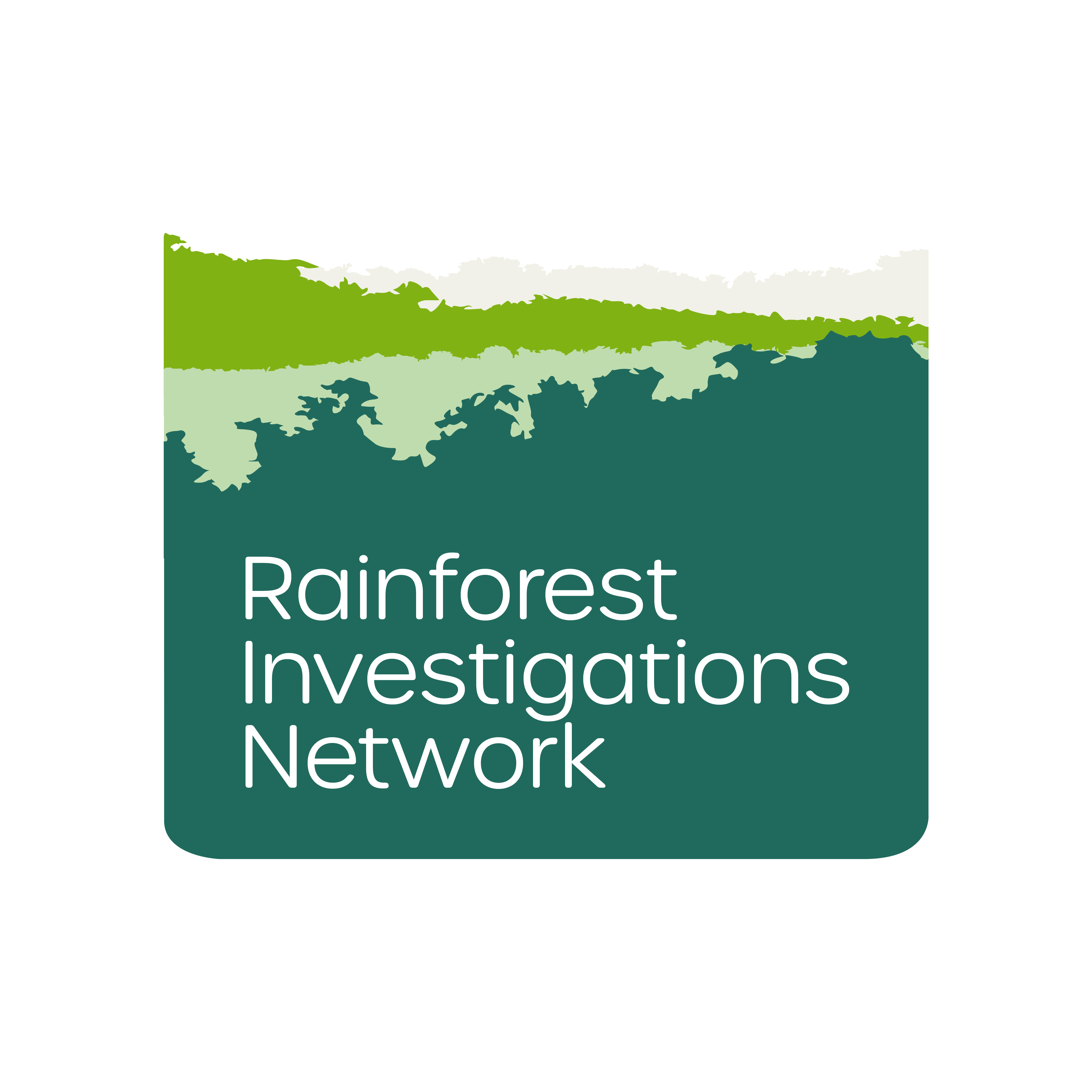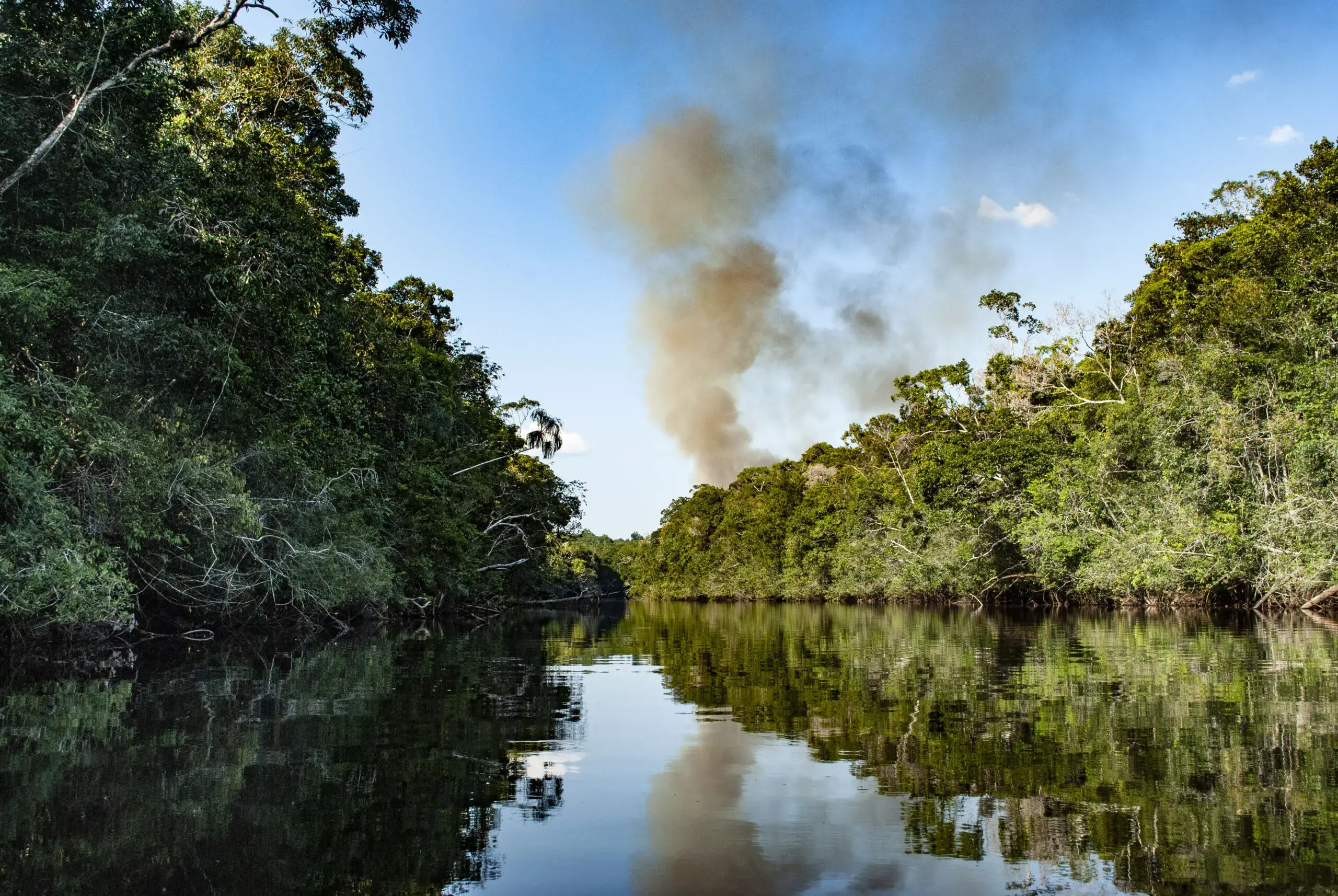
Colombia’s Constitutional Court will hear a voluntary carbon market case for the first time after selecting a legal action filed by the Indigenous authorities of Pirá Paraná. The high court’s decision could set a precedent for other similar payment for environmental services initiatives.
On April 28th, Colombia’s Constitutional Court selected a legal action filed by the Indigenous authorities of Pirá Paraná against a carbon credit project in their territory in the middle of the Amazon rainforest in Vaupés. With its selection, the country’s highest court will assess a case concerning the voluntary carbon market for the first time and its decision could set legal precedent for other similar payment for environmental services schemes. In other words, it could draw the legal lines on what can and cannot be done in carbon credit projects in territories inhabited by Indigenous communities.
As this journalistic alliance has been investigating for the past two years, many carbon credit projects implemented in Indigenous territories have not always been legitimate and transparent.
These projects, called Redd+, link local communities that care for strategic forests to mitigate the global climate crisis with companies that buy their carbon credits to offset their own use of fossil fuels. Each of these credits is equivalent to one ton of carbon dioxide—one of the greenhouse gases that drive climate change—that would no longer be released into the atmosphere as a result of these conservation efforts.

Whistleblowers and others in possession of sensitive information of public concern can now securely and confidentially share tips, documents, and data with the Pulitzer Center’s Rainforest Investigations Network (RIN), its editors, and journalists.
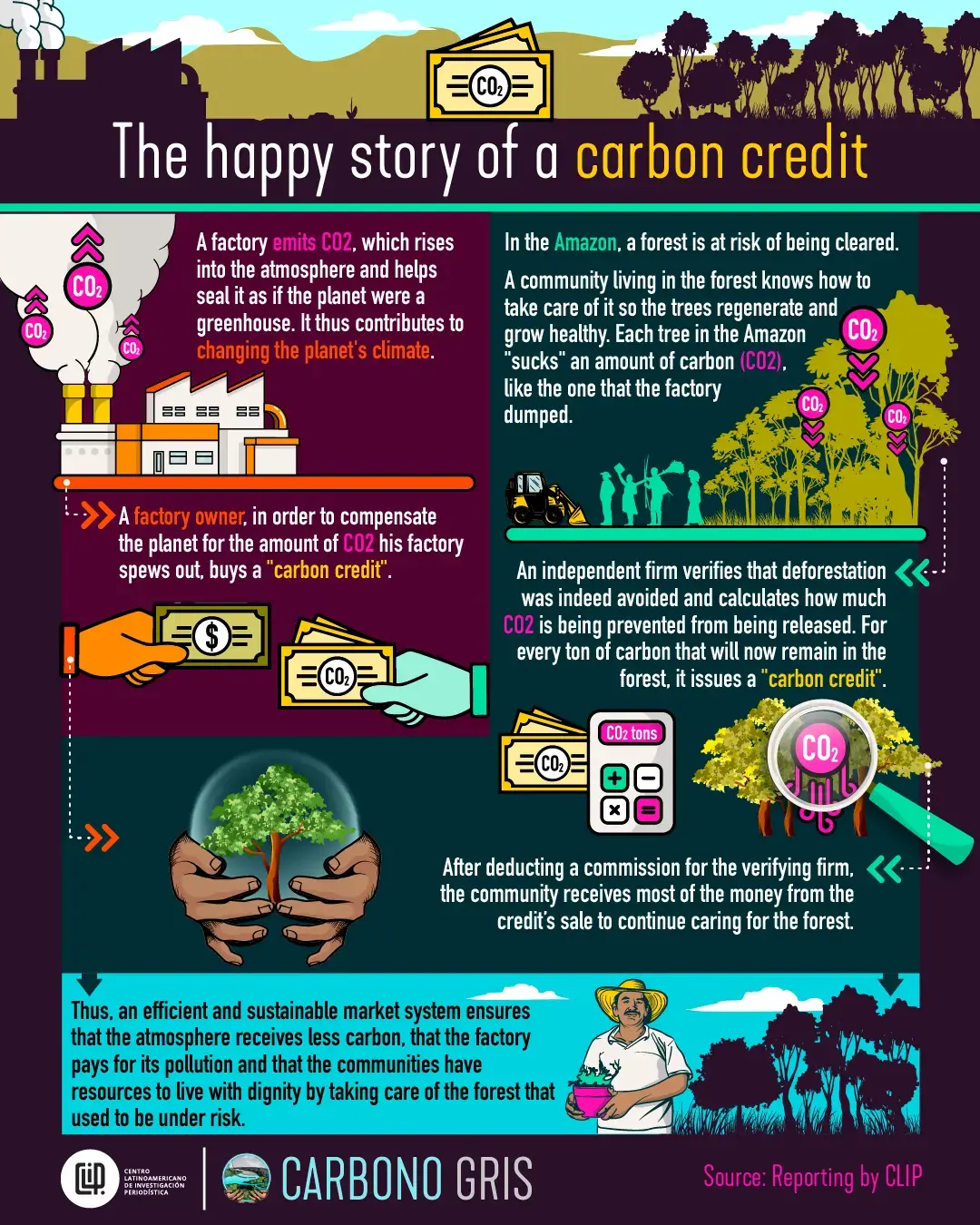
As a result of one of these initiatives, in July 2022 the Pirá Paraná’s Indigenous Council filed a protection action requesting the safeguarding of three fundamental rights that, in its opinion, have been violated by non-governmental organization Corporación Masbosques and three companies that promoted or validated the Redd+ Baka Rokarire project, as well as by one of the national authorities that should ensure the proper functioning of this type of climate solution seeking to bring resources to forest-preserving communities.
"Its actions and omissions in the registration, formulation, validation, verification, certification, monitoring and follow-up of the initiative," the Pirá Paraná authorities wrote in their legal action, "are seriously violating our fundamental rights to cultural integrity, self-determination, self-government and territorial integrity". Their request was denied by first and second instance judges late last year.
At the selection hearing, justices Antonio José Lizarazo and Jorge Enrique Ibáñez decided that the Constitutional Court will review the case because it meets two of its objective selection criteria.
On the one hand, they deemed that there is a "need to rule on a certain line of jurisprudence". That means that the Court will look at whether the judges have observed or, on the contrary, ignored the legal precedent that the court has signalled in its rulings, including on how protection actions are the suitable and preferential mechanism to resolve many problems concerning Indigenous peoples.
On the other hand, the two Court justices considered that it is "a novel issue". This occurs when a case concerns constitutional issues that have not been addressed before in jurisprudence.
The shadows surrounding the Baka Rokarire project
As the Latin American Center for Investigative Journalism (CLIP), Mongabay Latam and La Silla Vacía reported in an investigation published last October, the Baka Rokarire project might present several problems.
The plaintiffs claim that the person who signed the legal contract on behalf of the Indigenous people with Masbosques in March 2021 was the Pirá Paraná River Association of Traditional Indigenous Authorities (Acaipi)’s previous legal representative, who had been removed from office two weeks before signing it. They also argue that Masbosques negotiated with several captains of the territory individually, in addition to the one who was no longer Acaipi’s legal representative. However, the plaintiffs say, the NGO never sought out the Indigenous Council, which has been the highest authority in the Pirá Paraná region since May 2019. In the current authorities’ view, the manner in which Masbosques promoted the project—in their words "through documentary artifices and fraudulent maneuvers"—affected their fundamental rights.
Masbosques, a non-governmental organization from Antioquia that includes several public entities among its partners, has defended itself by arguing that it has acted correctly and that it signed the contract with whoever was the legitimate maximum authority at the time. "Masbosques acted with sufficient diligence and its actions were in accordance with the legal reality of the moment and consequently it cannot be predicated that (…) fundamental rights were violated or even put at risk," representatives of the organization told the first instance judge. Several of the Pirá Paraná communities support their initiative, underscoring the existence of a social fracture there.
Additionally, the Indigenous Council considers that the validation process of the Baka Rokarire project presents flaws throughout the entire carbon credit value chain, in which theoretically different actors should act as checks and balances to ensure that projects comply with social and environmental standards promoted by the UN and Colombia’s government.
Because they considered that these actors were negligent in not identifying these flaws at the origin of the project, they also directed their legal action against the certifier Cercarbono, the auditor Ruby Canyon Environmental and the consulting firm Soluciones Proambiente S.A.S., which helped formulate the project. One of them, Ruby Canyon Environmental, may not have noticed the problems because, as the investigation by this journalistic alliance pointed out, during its audit work it simply flew over the territory instead of visiting it, according to the report it submitted.
This alliance also found two other peculiarities in the Baka Rokarire project. In what could constitute a conflict of interest, the company that bought and possibly resold the first batch of credits in March 2022—called Latin Checkout—shares the same founding partners with Cercarbono, the Colombian company that manages one of the four certification standards operating in the country, registered the Pirá Paraná project and issued its credits. Those 1.3 million carbon credits were eventually redeemed by U.S. airline Delta Airlines.
In addition, the company listed as a consultant in the formulation of the project design document (PDD)— Proambiente Solutions—also turned out to be the project financier, as Masbosques revealed in an interview. This allows it to receive up to 40% of the resources from the sale of bonds, minus operating costs.
In both cases, these are facts of which the Indigenous authorities of Pirá Paraná were unaware of, they told CLIP.
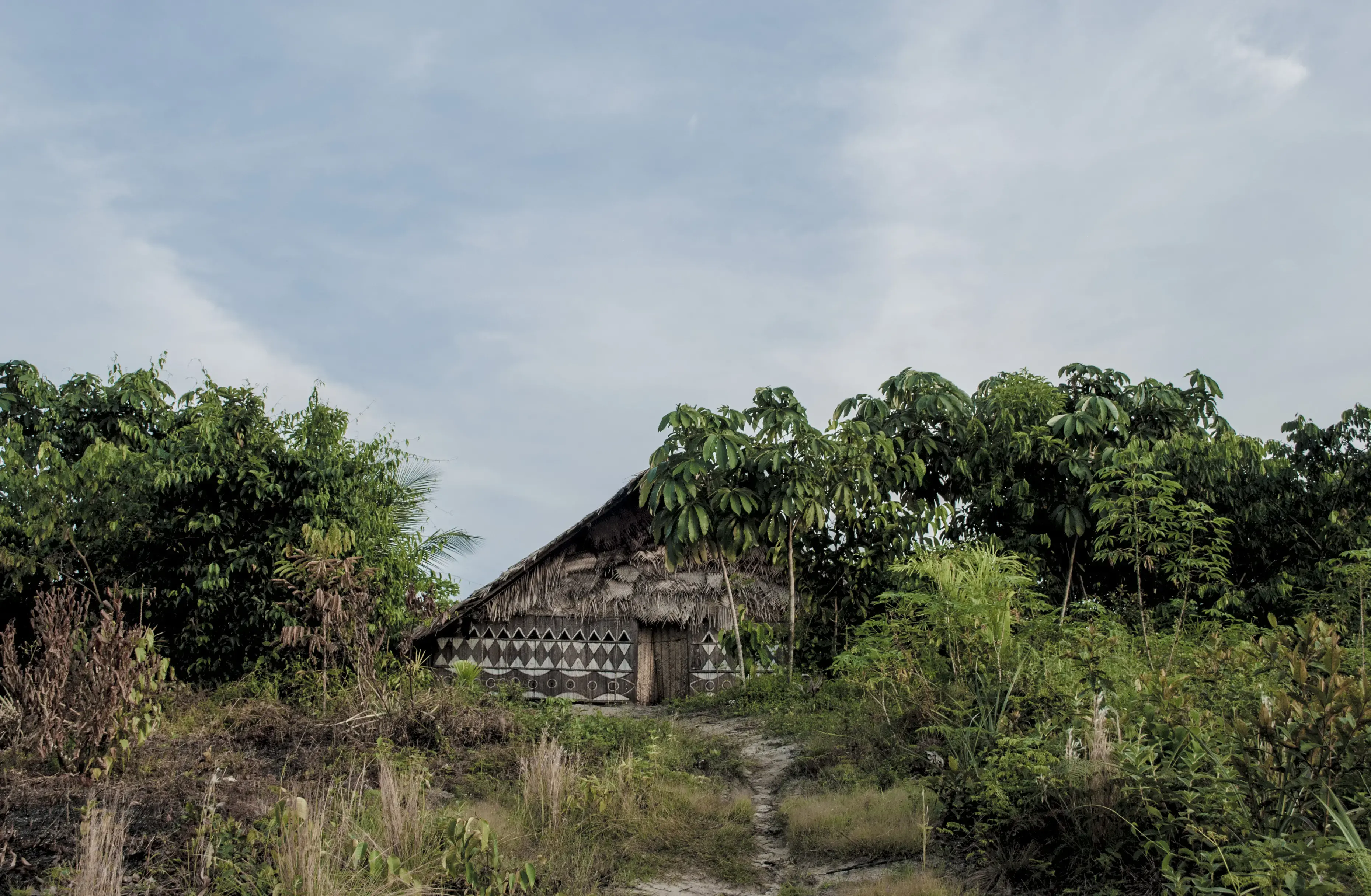
Rules of the game for the voluntary carbon market?
A substantive decision by the Constitutional Court usually takes several months or even years, but it could lay down the inescapable conditions that voluntary carbon market and Redd+ projects throughout the country must meet to guarantee the rights of Indigenous communities, which have special constitutional protection.
These projects have brought invaluable resources to local communities, but also—as this journalistic alliance has documented—have multiplied conflicts over carbon credit initiatives throughout the Colombian Amazon. In turn, some initiatives may be failing to comply with social and environmental safeguards on issues such as access to project information, community consent and participation, respect for internal governance structures, or accountability for their benefits. All this is happening under the unconcerned eye of the Colombian State, which is not supervising the implementation of these private projects and has so far not used its power to investigate possible irregularities in these projects.
Another point that could be clarified by the Court is whether carbon projects are business dealings between private parties in which the Colombian State should not intervene or whether, on the contrary, it has a duty to accompany the Indigenous or Afro-descendant communities that negotiate with companies and to supervise that they comply with minimum conditions.
Under the administration of Iván Duque, the Environment Ministry defended the view that a Redd+ project is "a private initiative and, therefore, is governed by the jurisprudence that assists it as an entity that exercises a commercial activity under private law" and that the Ministry "does not have the competence to supervise the management of such resources," as it responded to a CLIP investigation into another carbon credit case in the Matavén reservation, published before the change of national government.
Others, however, argue that public law should also operate, because although Indigenous reservations are collective private property figures, the exercise of authority by Indigenous peoples is of a public nature. In the words of lawyer Juan Carlos Preciado, who provided legal advice to the Pirá Paraná authorities from the Gaia Amazonas Foundation, "it isn’t a question of the nature of the land, but of who is involved in the process, and they are public authorities".
Gustavo Petro’s government has expressed a more favorable stance towards regulation of the carbon market than his predecessor. Although it hasn’t yet announced measures, Environment Minister Susana Muhamad has said that payment for environmental services schemes are needed to incentivize the care of the most sensitive ecosystems, but that they must be accompanied—in her words—"with regulation because today it is the Wild West when it comes to carbon credits".
With its ruling on the case, the Constitutional Court could help set the ground rules for a fledgling market that has grown dizzily in the last five years, to the point that there are a hundred projects in different phases of formulation throughout the country and millions of credits have been sold as an alternative to paying the national carbon tax.









